On the threshold of the first school day in Bulgaria, the questions about the future of Bulgarian education are increasingly relevant and the answers are increasingly vaguely wishful. Today we will tell you about the bright example of a school and its graduates.
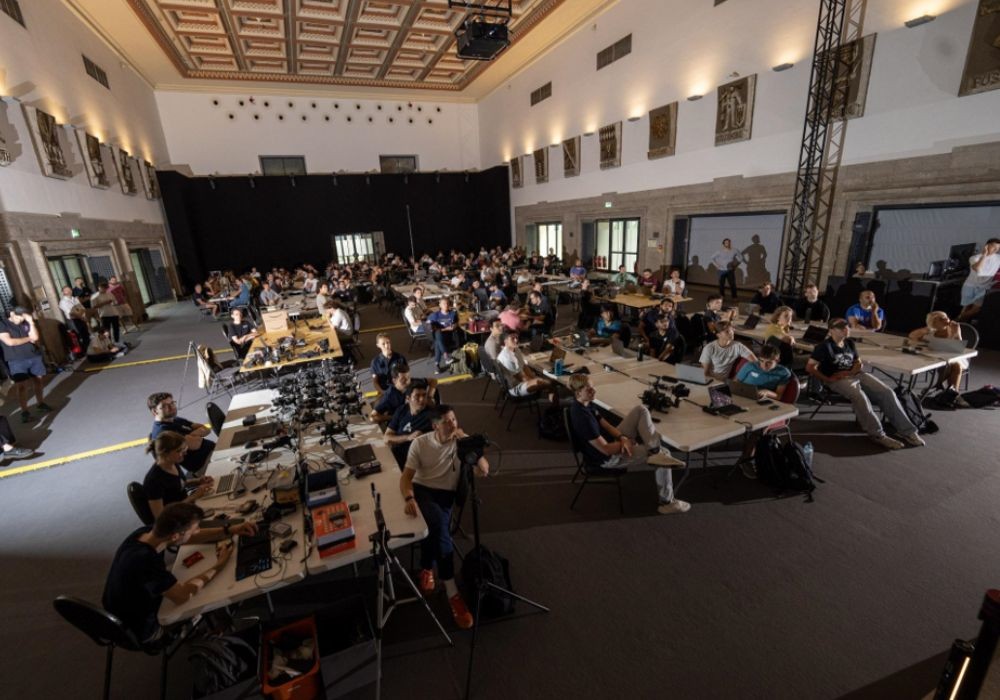
At the end of June, the first edition of the European Defense Tech Hackathon took place in Germany, as part of the Festival der Zukunft (Festival of the Future) in Munich. Within 24 hours, over 100 participants with 34 projects, military and technology experts from all over Europe, discussed ideas in Munich. The best eight projects were presented at the end of the event and received awards.
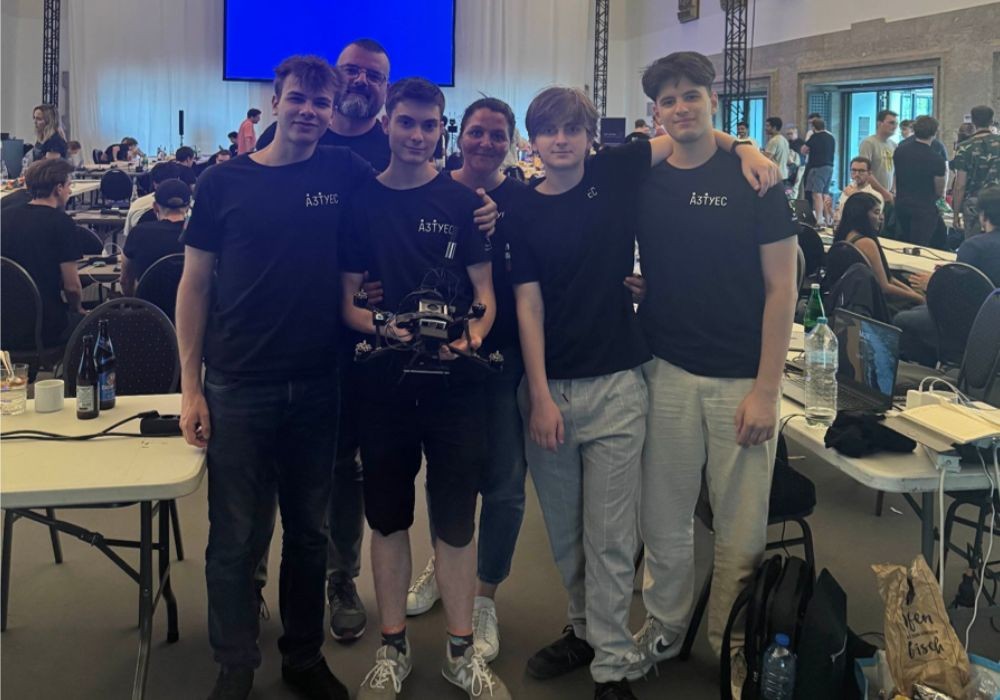
Bulgaria turned out to be the only country with a team composed entirely of students - these were eleventh-graders from the Technology school “Electronic Systems” (TUES) - Kaloyan Miladinov, Ognyan Razsadov, Philostratos Titopoulos and Alexander Mechkarov. Their mentors in the endeavour were Petar Kirkov, a former graduate of the school and one of the best cyber security experts in Bulgaria and Kirilka Angelova, executive director of the Association of TUES Graduates.
The "green" team of Bulgaria not only participated in the hackathon, but their project won third place in the idea competition. And it all started with a spam in the e-mail of Kaloyan Miladinov with information about the international event.
"It turned out that under certain conditions a team with participants under the age of 18 could be admitted. So, we decided to give it a try and started thinking about what we could do as a project. We came up with the idea of creating a system that could help with the localization of anti-personnel mines, which is a problem in a certain field of artificial intelligence and I personally find it very interesting.”
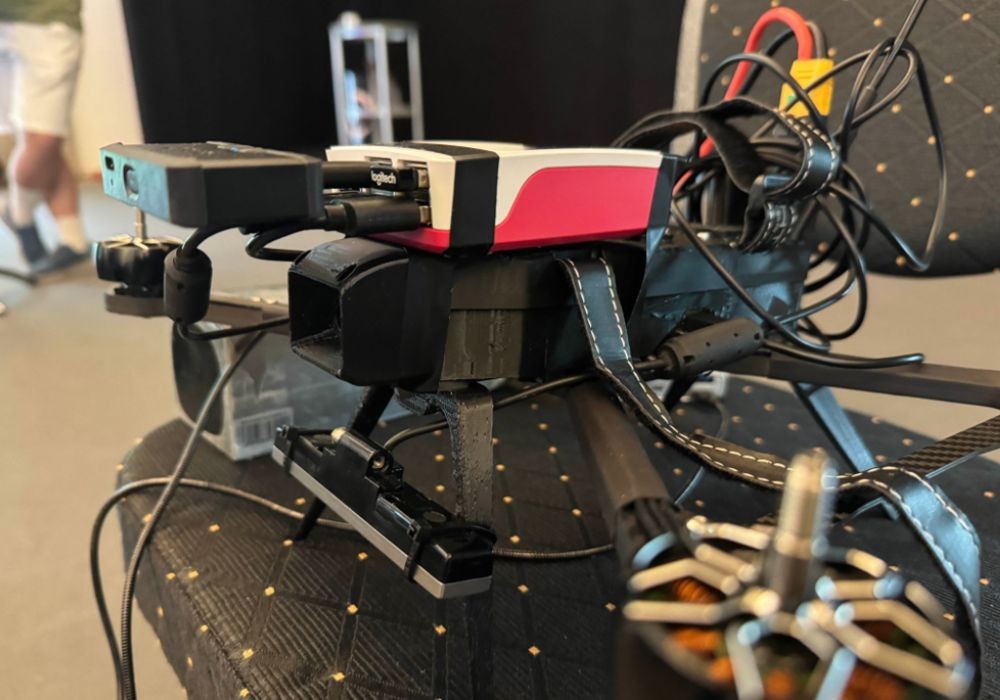
That is how the project "Identification of anti-personnel mines using drones and artificial intelligence" started. The work of the students started with the study of scientific papers on the topic, as a week before the hackathon, with the great assistance of Petar Kirkov, the team contacted the Institute of Defense "Prof. Tsvetan Lazarov" in Bulgaria and successfully carried out real observations and generation of a set of data to train the computer vision algorithms - a type of artificial intelligence that is at the heart of the module. The ultimate goal is to make it much cheaper and easier to identify this kind of military equipment, which is proving to be a huge global problem that is delaying the restoration of normal functioning of society and economy after the end of hostilities around the world. According to this year's data from the World Bank, de-mining Ukraine alone will cost $37 billion.
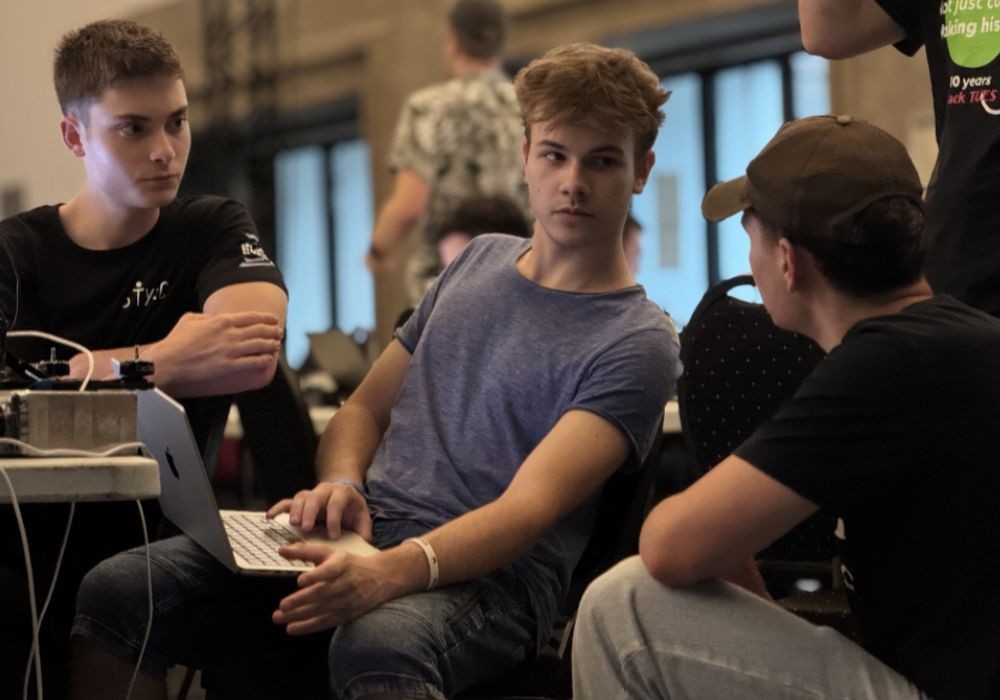
"I want to quote Kaloyan, who said at the presentation in Munich that the mine is the ideal soldier," Petar Kirkov adds. The mine doesn’t sleep and no one knows when it would be activated. The problem is that despite all the conventions and regulations, mines remain in use. Anti-personnel mines in particular can injure animals, children, adults, and it is extremely important that we have the ability to remove them. The problem is extremely topical."
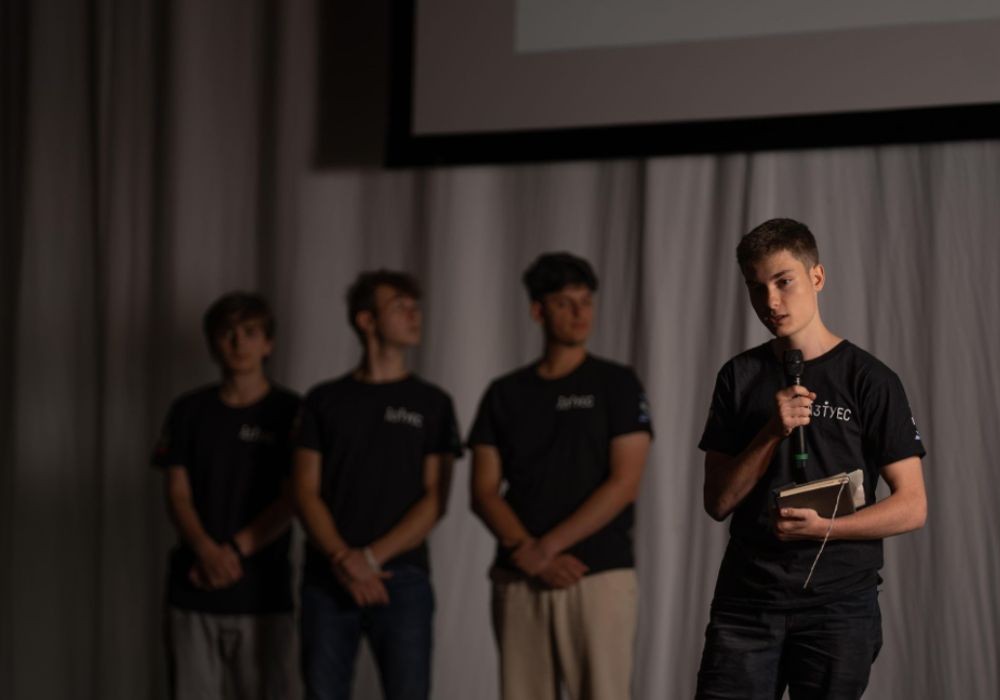
Certainly, the future of the project does not stop with its presentation in Munich, the team mentor tells us. The most valuable thing about the idea of the young people is that they apply world trends in all spheres of the economy and in defense.
"With hardware that cost less than €1,000 as a test setup, they have been able to achieve 80% detectability of mines," Petar Kirkov says.
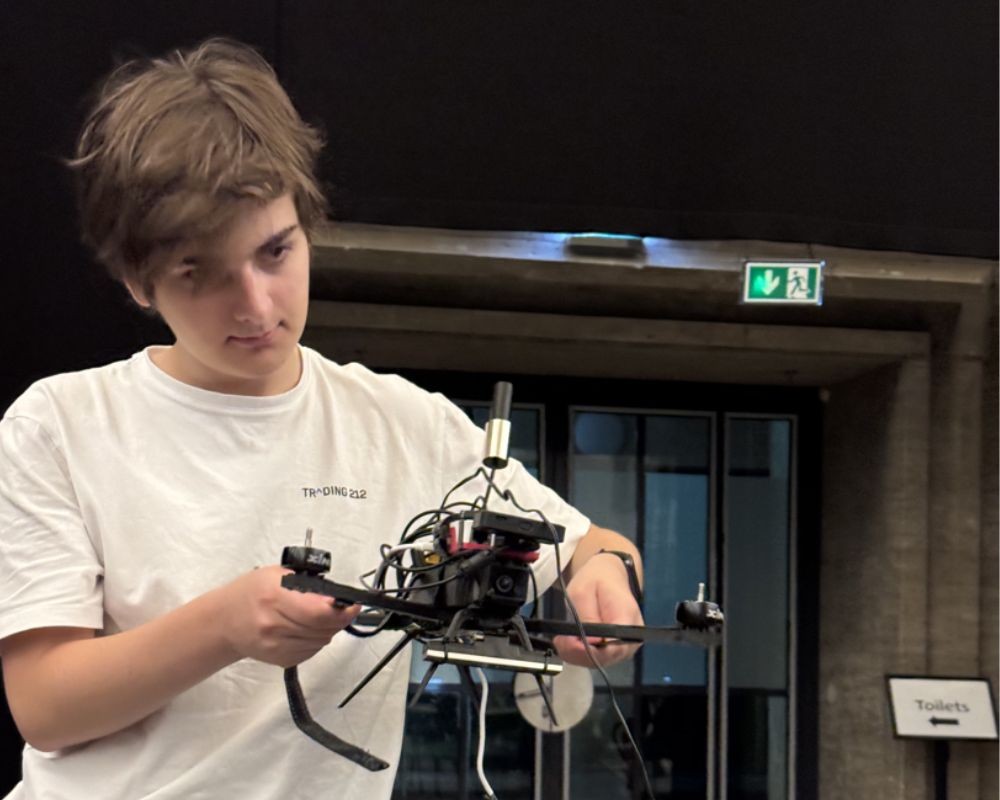
And if you are still wondering how it happens that some young people of school age come up with something so important for the security of humanity, then Kirilka Angelova has her time-tested answer:
"It happens when young people are active, have knowledge and skill, and have the freedom to choose to participate. Then it happens. In the context of education, we must say that the question is complex and presupposes that they also have a good family environment that supports them. And the school that gives them the knowledge and skills should also give them the opportunity to present them. There is a very strong hackathon organized by students for students in the school. There have been ten editions so far and participation is a matter of honor. The secret is to keep wanting to grow."
And to have a good team on your side, Kaloyan Miladinov adds.
Publication in English: Al. Markov
Photos: @BabyPro.ming, Kirilka Angelova, Philostratos Titopoulos
The Bulgarian minority in Romania marked a significant event with the official opening of the Bulgarian Inn in the village of Izvoarele (Hanul Bilgarilor), Teleorman County (Southern Romania)- a locality with Bulgarian roots dating back over 200 years...
The 14th edition of DiVino.Taste, Bulgaria’s leading forum for wines and winemakers, will take place from 28 to 30 November at the Inter Expo Centre in Sofia. Over 80 producers from all wine regions will participate, offering tastings of around 600 of the..
Minutes before the second and final reading, at the parliamentary budget and finance committee, of the state budget for 2026, the leader of the biggest party represented in parliament GERB Boyko Borissov halted the procedure and sent the draft bill..

+359 2 9336 661
